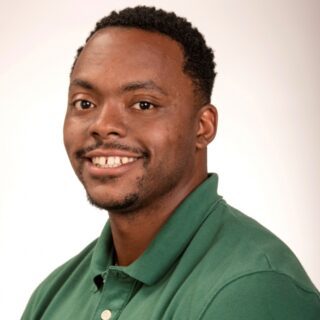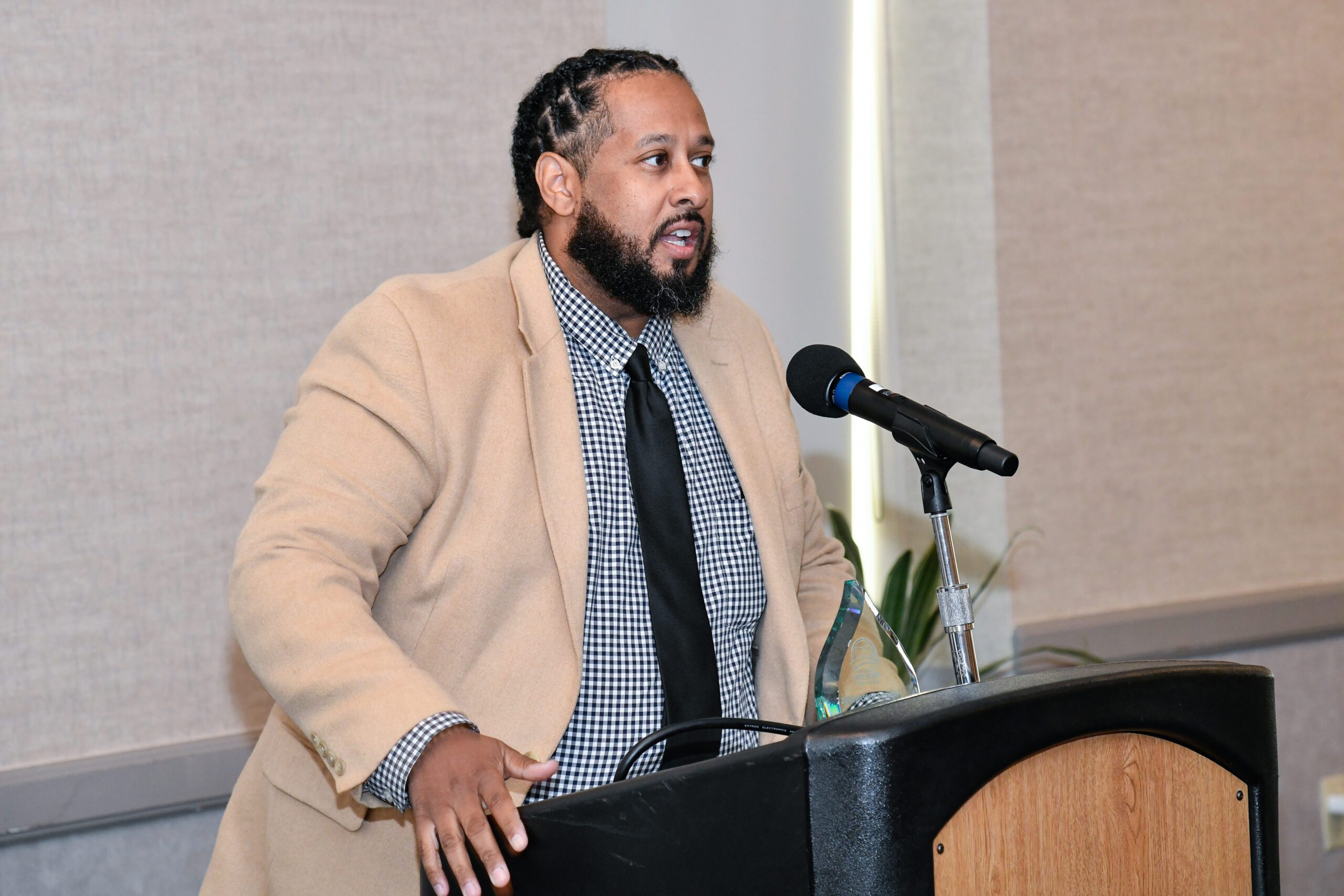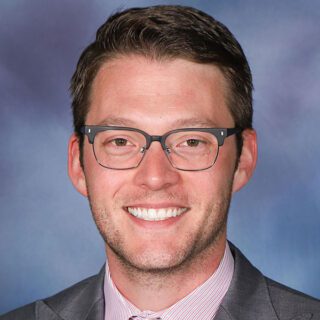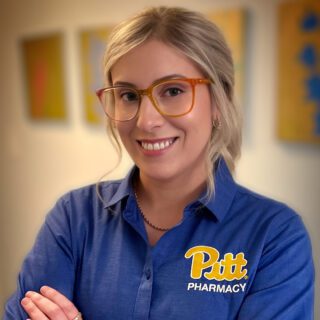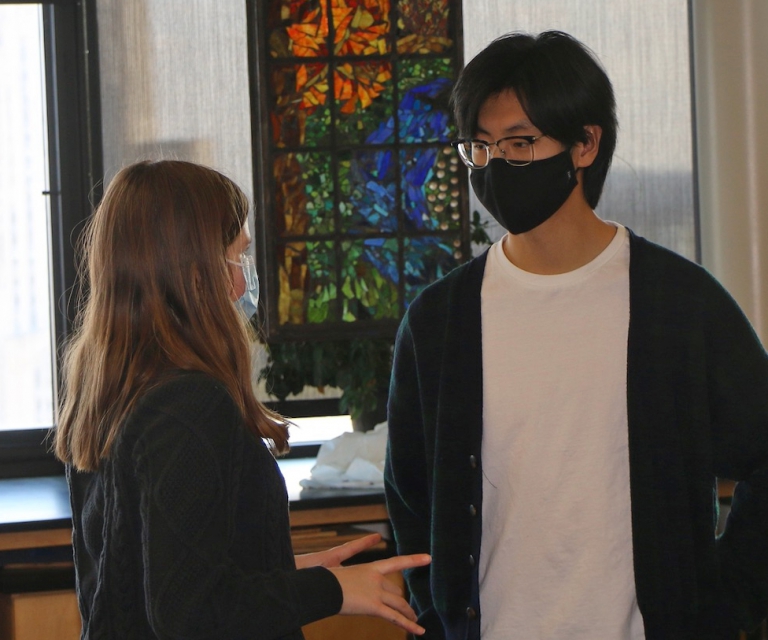
Student Teaching at Falk Laboratory School: Jeffrey Kim
The Fanny Edel Falk Laboratory School, a K-8 laboratory school affiliated with the University of Pittsburgh School of Education, serves as a demonstration school: a place where teachers learn to teach. Each year, approximately 20 students from the Pitt School of Education complete their student teaching under the mentorship of Falk teachers.
This is the first profile in a four-part series about student teaching at the Falk Laboratory School, originally published on the school’s website.
“What could go wrong?”
That’s the question Jeffrey Kim asks the seventh-graders seated at lab tables here in Alex Dragon’s science classroom. The class is completing a unit called Properties of Matter and today is their first time using lab equipment.
That means it’s also their first time using lab equipment at Falk, and so Kim’s question isn’t hypothetical: he’s asking the students to anticipate mistakes and problems that could lead to unsafe conditions or inaccurate measurements as a way to avoid them. Students suggest possible problems: spilling water, breaking equipment, or using the wrong unit of measurement when recording their results.
Kim, enrolled in Pitt’s School of Education’s Master of Arts in Teaching (MAT) Science Education program, is a student teacher working under the mentorship of Dragon, who completed his own student teaching at Falk under the guidance of Eileen Coughlin.
“I remember from my student teaching absorbing the general way class is run so that it’s not just the teacher up front,” Dragon says. He recalls learning ways to engage students, how to signal what he wanted from them, and how to hold them to high expectations while still being warm. Other highlights include Coughlin’s traditional eighth-grade roller-coaster project, which required helping students work with power tools, and Falk Middle School’s overnight trip to McKeever Environmental Center in Sandy Lake, Pa.
What surprised Dragon during his student-teaching days was how much of the teacher’s job is not just about the academic content but about academic skills that apply to far more than a particular lesson or unit. That includes everything from the lab safety techniques he and Kim have been teaching students to writing lab reports that are clear and succinct: these are all skills students will continue to use and develop during their time at Falk, and beyond.
For Kim, Falk’s approach to teaching and to training student teachers has been exhilarating. He reports being pleasantly surprised at how engaged the students are.
“I love Falk’s philosophy and the teaching environment,” Kim says. “When I think back on my middle school experience, science classes weren’t discussion-based.”
Kim’s student teaching experience began with observing Dragon teach, helping with small-group activities, and assisting Dragon in some grading. As he has grown more comfortable in the classroom, Kim has taken on greater responsibility, building up to taking over one of Dragon’s seventh-grade sections in February.
Today is one of the first lessons Kim is leading. Students are tasked with measuring and observing the characteristics of six different rocks, using their observations to identify each of the specimens on the worksheets that Kim handed out. The lesson supports the overarching goals of this unit, relating to the properties of matter, while also giving students a chance to practice the lab techniques that Dragon has been introducing over the last few weeks.
Kim walks around, checking in with various groups as they place rocks in graduated cylinders that contain water. The groups have measured the mass of each sample, and will now use changes in the water level to find the volume; combining these two measurements, they will calculate the density of each rock using the formula of density = mass/volume.
“Be careful,” Kim says as he makes his rounds. “This is just water, but still be careful.”
Dragon hangs back, observing Kim so as to give feedback later. He also steps in when groups have questions, or he notices a teachable moment. The graduated cylinders that students are using have both metric and English measurements, and Dragon encourages students to double-check which measurement they are recording on their worksheets.
One group’s rock becomes stuck in the narrow neck of the cylinder and a bit of water splashes out as they try to extricate it. Kim helps them think through what to do next: if they simply try again, will they still get an accurate measurement? What can they do to follow the lab procedures that he and Mr. Dragon have been discussing over the last several weeks?
After talking it over, the group refills the water to match its previous level, then very carefully drops the rock into the cylinder.
“You don’t want to continue in that situation because the errors are just going to compound,” Kim says later, reflecting on the day’s lesson. “These are important lab skills for them to learn.”

